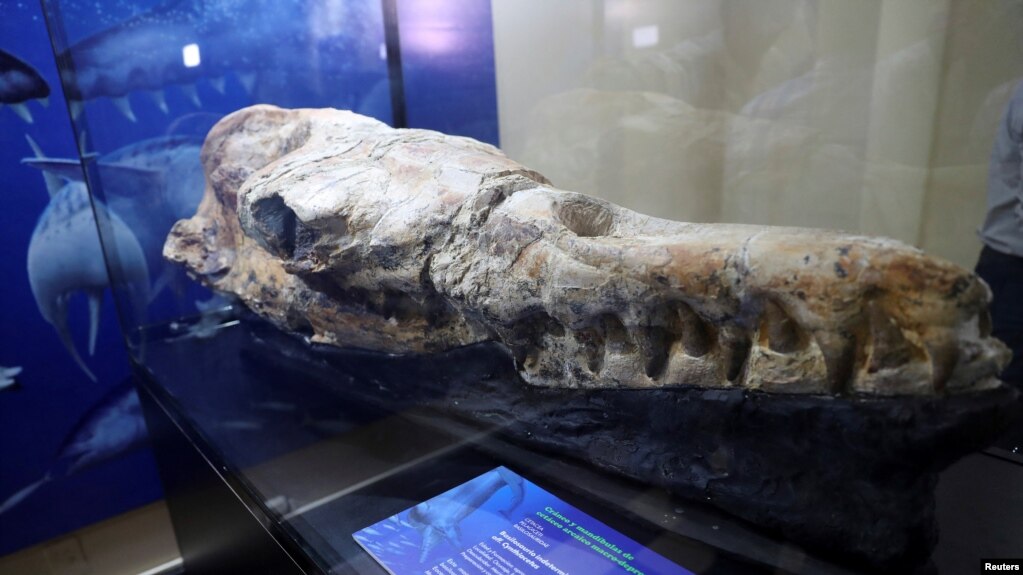Scientists in Peru Discover a Huge Whale Ancestor

Scientists in Peru have discovered the skull of an ancestor of modern-day whales.
The fossilized skull is believed to be about 36 million years old. Researchers say the discovery suggests that the animal lived in an ocean that once covered Peru’s southern Ocucaje desert.
The scientists reported the skull was in good condition when dug up last year. It has a series of long, pointy teeth, said Rodolfo Salas, chief of paleontology at Peru’s National University of San Marcos. Salas spoke to reporters about the discovery.
Scientists say the ancient mammal was a basilosaurus, which belongs to the cetacean family. This is the same family that includes modern water creatures like whales, dolphins and porpoises.
The name basilosaurus means "king lizard" and the animal is thought to have been about 12 meters long. But it was not a reptile although its long body might have moved like a large snake, the researchers said.
Salas called the animal "a marine monster" that may belong to a new species of basilosaurus. "When it was searching for its food, it surely did a lot of damage," he added.
The skull is already being shown at the university's museum.
Scientists believe the first cetaceans evolved from mammals that lived on land about 55 million years ago. Salas explained that when the ancient basilosaurus died out, its skull likely sank to the bottom of the ocean, where it was quickly buried and remained.
"Back during this age, the conditions for fossilization were very good in Ocucaje," Salas said.
Words in This Story
skull – n. the part of the head, made of bone, that protects the brain
fossil – n. part of an animal or plant that lived a long time ago that has been preserved in rock
mammal – v. a kind of animal that feeds milk to its young and that usually has hair or fur covering most of its skin
marine – adj. found in or relating to the sea
species – n. a group of animals or plants that are similar and can produce young animals or plants
evolve – v. to develop or make something develop over time
https://learningenglish.voanews.com/a/scientists-in-peru-discover-a-huge-whale-ancestor/6494884.html


